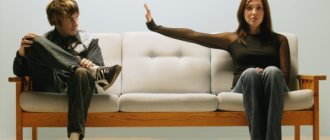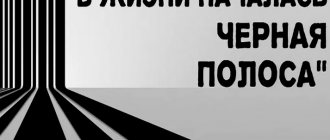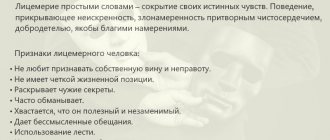Nyctophobia (achluophobia) is a fear of the night, or more precisely, it is an irrational fear of the dark, as well as a fear of the dark, no matter how strange and paradoxical it may sometimes sound. A healthy person is unlikely to understand what I'm talking about. And, if you really don’t understand me, then you are probably the happiest living organism on earth, and therefore, perhaps, in the entire Universe. Why? It's simple. Despite all its absurdity, which can be seen even by looking at the definitions of this concept, this type of human phobia has become quite widespread in the world and in the minds of people. According to statistics, about 10% of the adult population of our wonderful planet is susceptible to this.
How does this happen? Let's figure it out.
I'm sitting in the dark. And it is no worse in the room than the darkness outside. Joseph Alexandrovich Brodsky
Introduction
I would like to warn you that in this article I will not rewrite any official documents on psychology, their interpretation of nyctophobia (achluophobia) and other things.
I will try to talk about this phenomenon, based on my life experience, observations, and, of course, the stories of people whom I interviewed over a fairly short period of time. Of course, in my reasoning, I will give arguments that were probably already thought up by someone earlier. After all, the best minds and philosophers of past years struggled with this (and other) phenomenon. I will try to supplement them with my thoughts, to give you food for further reflection on this topic.
This is my first article of this kind, so I sincerely hope that you enjoy it. I suggest not to delay and start the description. Freelance author
If you can't overcome
Psychological method of struggle - an artificially created situation to look fear in the eye
When a person is unable to cope with fear at home, he goes to see a specialist, where four solutions can await him.
- An approach to each person, identifying a phobia, analysis of fantasies, an example of incorrect behavior in circumstances that are traumatic.
- Game procedure. A person is deliberately confronted with fear. The specialist suggests various ways to deal with it, suggesting an accessible way out of the current situation.
- Self-expression in creativity. Fear can be depicted using modeling or drawing. It will be easier for the specialist to understand what exactly is troubling the patient.
- Plunge into darkness with a doctor. It is important that the patient trusts him.
Causes of nyctophobia
In fact, we owe the appearance of such a phenomenon as “Achluophobia” to our rich imagination.
Yes, it exists only in our heads. But this is only one of the reasons. Of course, night and darkness in general can be dangerous. Even greater danger. Especially if you are somewhere far off the beaten path, far from home. The forest at night really poses a serious threat to human health. After all, hundreds of different living organisms can be hiding in the dark, among them predators who sleep and see how they sink their teeth into your neck.
There are also hundreds of dangerous insects hiding in the darkness, meeting with which hardly promises to be pleasant. Is this nyctophobia? I don't think so. Look at this with sober eyes: this is a common defense mechanism that tells us that it’s time to get out of here a long time ago. And there really is a justification for this (I partially described this above).
And the people of the past really knew that at night they became much more vulnerable than during the day. After all, Homo Sapiens receives most of the information through sensory organs such as the eyes. And in the dark they are of very little use. It’s as if the person becomes almost blind, almost completely defenseless. This is probably what was somehow “recorded” in our genetic memory and passed on to future generations.
Fear of the dark test
1. Late evening. You are alone at home. Suddenly the lights went out throughout the entire street. Your actions?
- a) Go to bed.
- b) In a panic, you will start calling someone: the State Electrical Network or someone close to you. As an option, go to your neighbors. Just not to be alone!
- c) Light candles and try to distract yourself: surf social networks on your phone, listen to your player.
You had to return home late at night. It's a 10 minute walk. How will you get there?
- a) Call someone you know, wake them up and insist that they come for you.
- b) By taxi.
- c) You can get there on foot.
At night, do you open the bedroom door wide, leave the curtains open, and turn on the night light?
- a) The door is open, but the curtains are drawn and there is no night light.
- b) Yes it is.
- c) The door is closed, all the lights, even dim ones, are turned off, the curtains are drawn.
Do you watch horror movies at night?
- a) Yes.
- b) No.
- c) You try to watch during the day, but if a situation arises where the company is going to do it in the evening, you will not refuse.
What scares you in the dark?
- a) You are afraid to even talk about it.
- b) Absolutely nothing.
- c) Sometimes you may be frightened by an incomprehensible rustling sound.
Does it take you long to fall asleep?
- a) Not really.
- b) Instantly.
- c) For a very long time.
You woke up from a nightmare. Your actions?
- a) It’s hard for you to imagine this because you’ve never woken up from a nightmare.
- b) Try to fall asleep again.
- c) Drink something calming to help you fall asleep again.
In the dark, do ordinary objects often seem scary and fantastic to you? For example, is the robe a ghost?
- a) Every night.
- b) Sometimes.
- c) Never.
Calculate your points:
Interpretation of results:
- 0-5 points - you are a very brave person who has absolutely no fear of the dark, you have a strong nervous system;
- 6-11 points - you, like many people, are sometimes afraid of sharp sounds and inexplicable rustlings in the dark, but this fear does not go beyond the norm;
- 12-14 points - a state close to nyctophobia, it is worth taking measures to get rid of fear;
- 15-16 points - you suffer from nyctophobia and need to consult a specialist.
Only a psychotherapist can make a more accurate diagnosis.
The onset of nyctophobia in childhood
But what to do with unreasonable fear?
When nothing seems to pose a health threat? For example, a person suffering from this phobia, even turning off the light in the room, will probably be scared. And it doesn’t matter that he saw his room a second ago, he knows for sure that there is absolutely nothing in it that can kill him. But he will still be scared. Why? This is where our imagination begins to play. The roots of this phenomenon appear in early childhood. At the age of two or three years, I think. It is then that the developing children's imagination plays a cruel joke on us. In fact, fear of the dark is not that uncommon among preschool children. This is quite normal, I would say. Moreover, almost every child experienced this fear.
A child left alone in a dark room is not able to see the entire surrounding reality. Due to the lack of light, many objects lose their outlines, transform and look slightly “different”. And the brain begins to independently fill in the missing details, objects, draw objects that, perhaps, do not exist at all. I won’t say why (perhaps it’s still connected with the same genetic memory), but all these outlines often have a sinister character. This is one of the reasons why small children are afraid to sleep with the lights off.
There are also various experiences of the child, his (again, often negative) impressions, memories that have not passed over time. But this is all about the emergence of a phobia in early childhood. Does it happen that a phobia appears in an adult? Happens. Experts give the following reasons for this:
- Fear of death, which is often hidden behind the fear of the dark, but has no less influence on consciousness. When fighting nyctophobia, you need to start by eliminating the fear of death.
- Feeling of oppressive darkness. An individual, left alone with himself at night, involuntarily begins to experience irrational fear due to the feeling of “pressure” of the darkness.
- This is unlikely to lead to the appearance of a phobia, but, nevertheless, our experiences, which are based on a subjective reflection of past events, may prevent you from getting enough sleep at night. Watching a horror movie or reading a scary story (or anything similar) is included in this point.
Consequences
If you do not pay attention to developing nyctophobia in time, then over time there may be serious consequences for a person’s mental and physical health:
- distress that gradually destroys the body;
- heart attack and stroke;
- development of mental illness, most often schizophrenia and persecution mania;
- suicide attempts;
- holding your breath while sleeping;
- premature aging due to constant stress.
How to get rid of nyctophobia?
Most people, having matured, get rid of nyctophobia on their own, leaving their irrational fears and experiences far in the past, turning it into only a weak echo.
Some people have been fighting it since early childhood, using willpower, endlessly coming face to face with it, and emerging victorious from this difficult battle. Some people stay with it forever. These people, who were unable to drive away their fear, constantly try to hide their true feelings, coming up with various excuses in front of other people. Not the best solution, it must be said. Don't deceive yourself and your loved ones. Perhaps he should share his experiences with others and ask for their advice? You still won’t be able to run away from your fear forever. The day will come and fear will still take such a person by surprise, no matter how much he hides. And this does not bode well.
Darkness is nothing more than darkness, but anything can hide in the shadows. Terry Pratchett. The Last Continent
A person driven into a corner by the object of his phobia will be very shocked and fall into real panic. Shortness of breath, increased blood pressure, increased heart rate, dizziness, increased sweating and even nausea are just a few of the symptoms. There may be a loss of control over yourself and your body. It is unlikely that all this will bring great pleasure. Therefore, we need to approach this issue more than seriously.
Symptoms of night terrors
Manifestations of fear of the dark are similar to symptoms of other types of similar disorders. Just anticipating the approach of night, a nyctophobe (as people who are afraid of the dark are called) experiences:
- increased heart rate;
- headache: usually appears sharply and unexpectedly;
- weakness and decreased muscle tone;
- sudden changes in blood pressure;
- stomach cramps;
- chills or excessive sweating;
- unexpected stuttering, hoarseness, or loss of voice.
Headache, weakness and fatigue are common symptoms of nyctophobia.
At night, a nyctophobe may also suffer from nightmares, and upon abrupt awakening, he exhibits fussiness, increased nervous tension, impetuosity and a desire to run away.
An exacerbation can be provoked by a lack of certain vitamins, which can restore balance to the nervous system. Therefore, a balanced diet is important.
What to do? Treatment
Treatment can be very varied.
For example, a person who is afraid to fall asleep alone can read good literature before bed, listen to good music. You need to try to isolate yourself from negative thoughts and emotions. It is worth remembering all the good things that have happened, will happen, or are currently happening. While falling asleep, you can dream about something very interesting and make plans for the future. The main thing is to try to go to bed in a good mood. This method, unfortunately, does not help everyone; it also does not save from situations where a person is faced with fear outside the home, so in most cases this phenomenon is treated with a psychotherapeutic method. Various relaxing techniques, hypnosis, and special trainings are used. In particularly severe cases, patients are prescribed special medications that have a calming effect and relieve symptoms.
A person who has gotten rid of this phobia will be able to experience those joys that were previously inaccessible to him. What are these wonderful night walks under the starry sky worth, for example!
Don't fight the darkness. Let the light in and the darkness will disappear. Maharishi Mahesh Yogi
What does ignoring the problem lead to?
When faced with a cold, you feel unwell and see the consequences of the disease (sneezing, coughing, watching your throat become red, etc.). In the case of a phobia, you deny the problem more often than you admit it, attributing inappropriate reactions to a defense mechanism. This is dangerous, as it leads to a lot of negative consequences. Eg:
- The quality of life decreases.
You cannot fully rest even at night, because you do not allow your brain to relax normally by keeping the TV or light source on. You also avoid evening walks, since this time of day is “owned” by shadows and dark corners.
- The stressful environment increases.
Any fear causes stress for the body, and phobia makes it chronic. Sometimes a prolonged stressful state leads to serious heart problems, even a heart attack.
- Old age comes faster.
Photo by cottonbro: Pexels
According to American researchers, nyctophobia promotes early aging and shortens life expectancy.
If such prospects do not frighten you, think about the fact that nyctophobia can also be a symptom of schizophrenia, and this mental disorder poses a threat not only to you, but also to those around you.
Distinctive signs of a phobia
Acluophobia is distinguished from an acceptable fear of the dark in certain conditions by the following features:
- a feeling of hopelessness, a dead end in gloomy conditions;
- loss of self-control;
- incoherent thinking;
- chaotic behavior;
- panic attacks when suddenly entering the dark;
- increased, unjustified fear of dark streets;
- denial of the presence of a phobia;
- performing certain rituals to prevent fear;
- to justify the phobia, the patient comes up with explanations for his behavior;
- inability to be alone at home during twilight hours.
The presence of a phobia is excluded if:
- a person experiences slight discomfort in the dark under certain circumstances;
- the ability to think clearly is maintained;
- there are no signs of panic;
- behavior is appropriate.
Ways to Prevent Scotophobia
To free yourself from the fear of darkness before going to bed and fall asleep without problems:
- We try to relax, take deep breaths. We convince ourselves that the horrors lurking in the darkness are figments of our imagination;
- We do without horror stories, black stuff, and crime news. We listen to relaxing music, enjoy the monologue of our favorite comedian;
- If you don’t sleep well, it seems that there are strangers in the room, we get out of bed, touch the cabinets, shelves, bedside tables. We make sure that we are alone in the room;
- We use a night light that has brightness adjustment. We gradually reduce the brightness and get used to sleeping in complete darkness.











